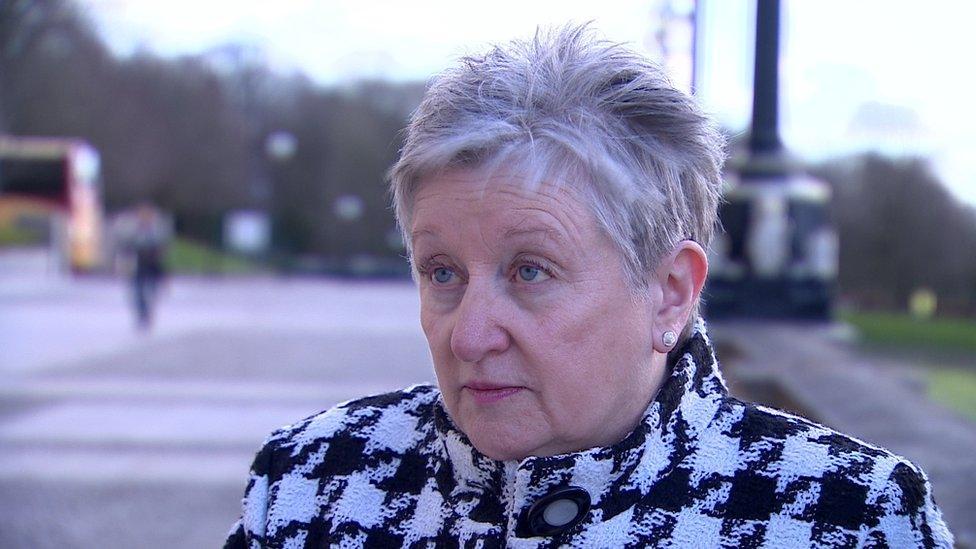Army and police accused of cover up over use of plastic bullets
- Published
Helen Whitters says she has never been told why her son Paul was shot dead with a plastic bullet
The Army and police have been accused of a cover-up in the deaths of children killed by rubber and plastic bullets during the Troubles.
BBC Spotlight has examined declassified material that reveals the Army knew it was too dangerous to fire the bullets at children, but it continued to do so.
Documents also show the Royal Ulster Constabulary (RUC) was firing a plastic bullet gun never fully cleared for use against people.
But this was kept quiet.
The Ministry of Defence (MoD) declined to comment, citing legal reasons.
The Police Service of Northern Ireland (PSNI), which took over from the RUC following a rebrand in 2001, said the use of the weaponry is now strictly regulated.
The gun firing rubber, and later plastic, bullets was invented for Northern Ireland and designed to deter people rioting by hurting but not killing them.
At least 120,000 were fired during the Troubles.
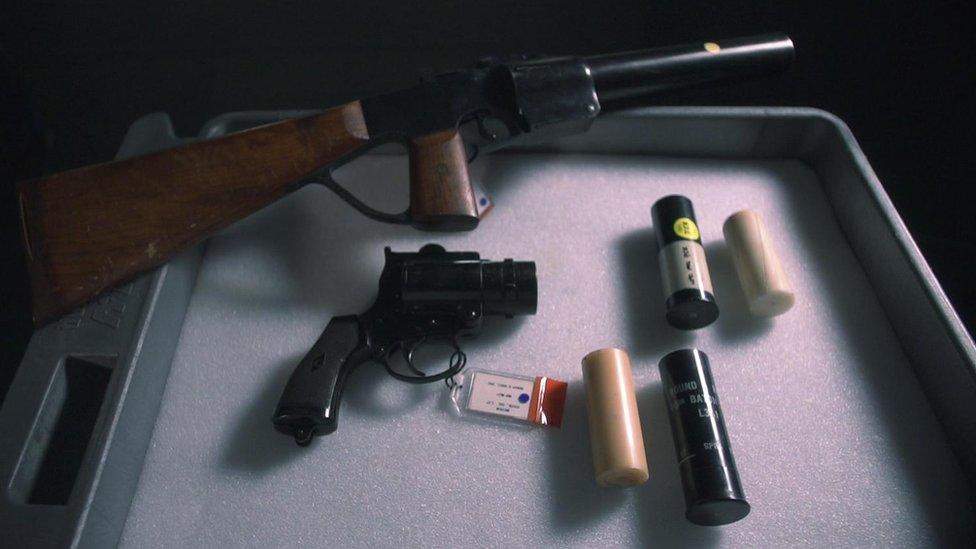
Rubber and plastic bullet guns were designed as a non-lethal weapon
Sixteen people were killed by rubber or plastic bullets during the Troubles. A 17th person was killed by a fall, possibly after being hit by one of the bullets.
Some were involved in street disorder. Others were bystanders.
Eight of the dead were children.
Others suffered serious injuries, including brain damage and blinding.
'He never got to grow up'
The youngest person to die was 10-year-old Stephen Geddis who was hit by an Army plastic bullet at Divis Flats in Belfast in 1975.
Stephen's brother, Jim Geddis, told BBC NI's Spotlight programme: "I remember him being fairly timid. A quiet kid. I'd see him with his little friends. Just an unassuming kid.
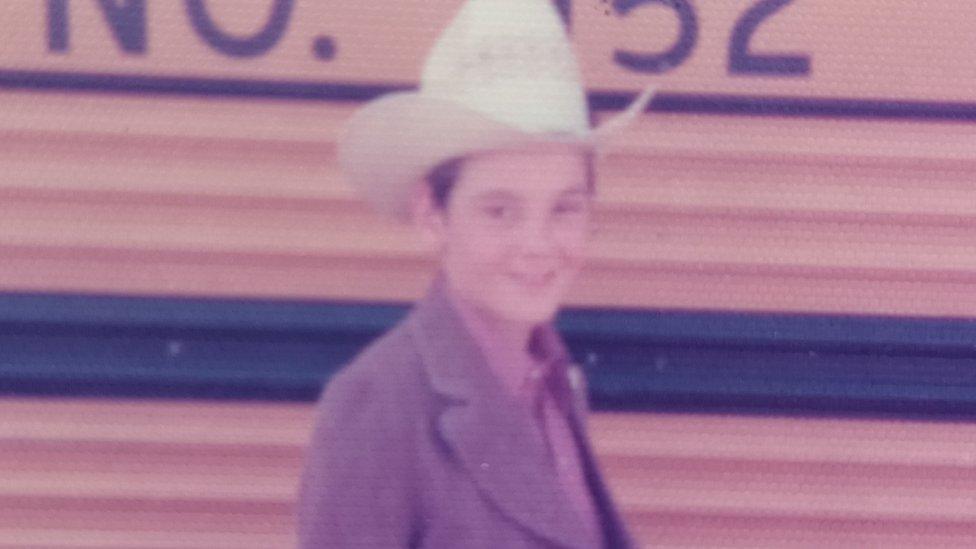
Stephen Geddis was 10 when he was killed by a plastic bullet in 1975
"This little guy never got to grow up and get married, have children of his own. Never happened."
Last year an inquest concluded Stephen was out playing and there was no justification for his shooting.
Documents uncovered during the inquest revealed that in 1971 the Army's own Land Operations Manual stated baton rounds should not be used against children.
But this instruction was never passed on to soldiers.
Six children died after being hit by Army plastic bullets.
The Geddis family's solicitor Padraig O'Muirigh claims "there is clear evidence of a cover up".
An MoD spokesperson said it would be inappropriate to comment because the soldier who shot Stephen is legally challenging the inquest findings.
In 1981, 15-year-old Paul Whitters was hit by a plastic bullet fired by the RUC during street disturbances in Londonderry. He was in a group of teenagers throwing stones.
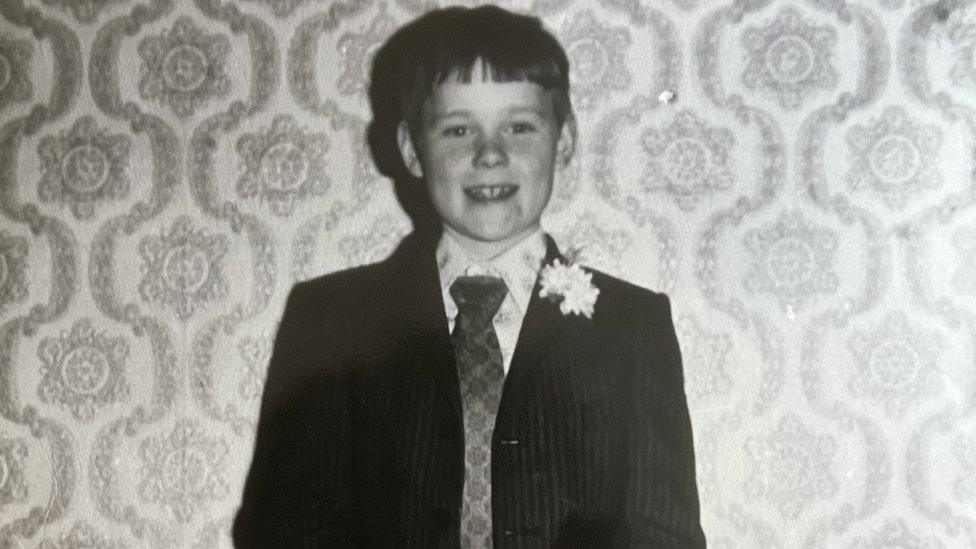
Paul Whitters, 15, died after being hit by a plastic bullet in Derry in 1981
Paul's mother Helen Whitters said: "This did not sit well with me because that's not who Paul was. We weren't political, let's put it like that. I had to face the fact he had a mask on and I still find that hard."
However, in 2007 a Police Ombudsman's investigation concluded there was no justification for police shooting Paul.
'We need answers'
Recently declassified government documents have revealed the plastic bullet gun used by the RUC in his shooting was never fully medically tested for its potential risks to civilians.
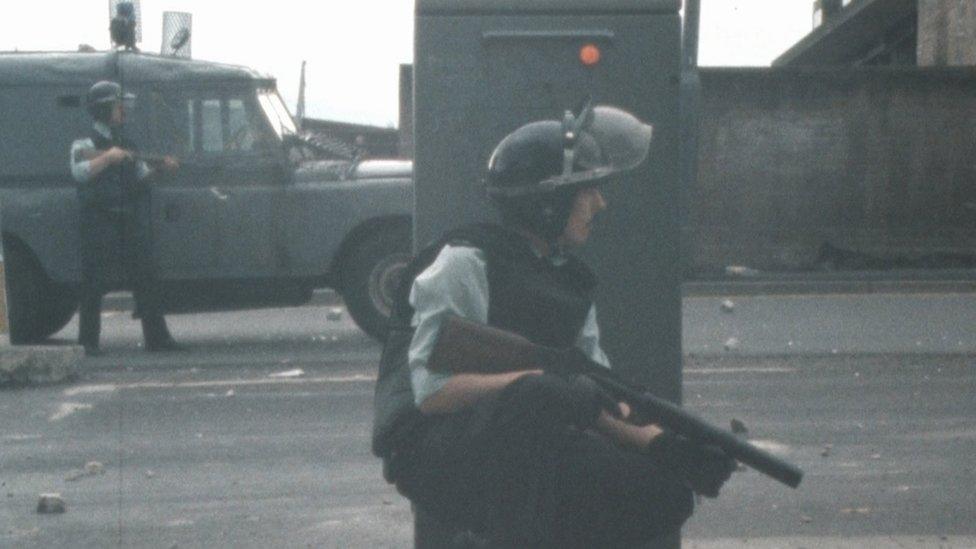
Neither the public nor the Whitters family were ever told.
Ms Whitters said: "I still want to know all these years later why Paul was shot that night, and I've never got an answer. We do need some kind of an answer."
In a statement to Spotlight, Assistant Chief Constable, Alan Todd, sympathised with the Whitters family.
He said that policing has changed considerably in the past 42 years and the deployment and use of these weapons is now strictly regulated and approved.
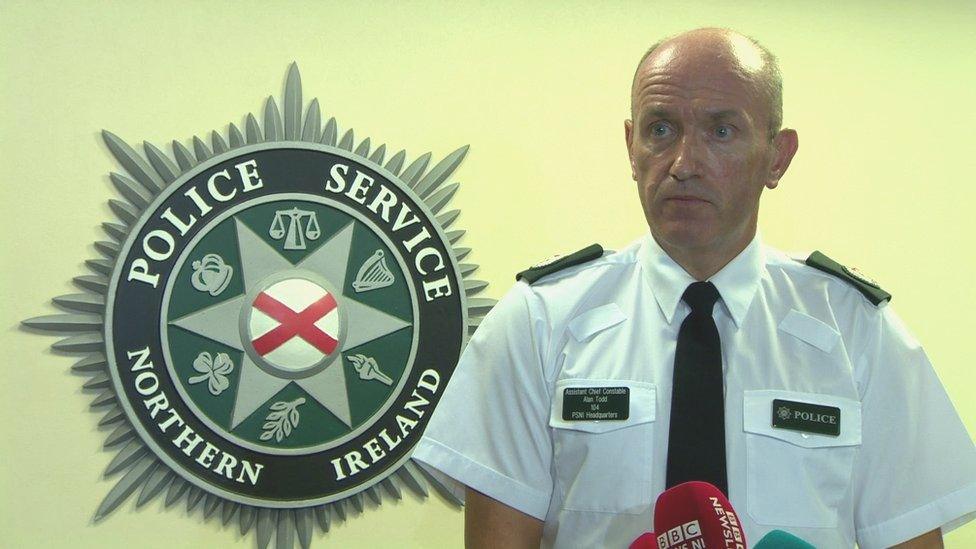
PSNI Ass Ch Con Alan Todd said the police service has reformed considerably over the last four decades
He added that if the weapons were used, this is automatically referred to the police ombudsman.
Spotlight has also spoken to ex-soldiers who stand by the use of the riot-gun.
Colonel Richard Kemp, who commanded British troops, said: "To say that the plastic bullets should never have been used, I think is a foolish thing to say.
"The plastic bullet was a lifesaver, not just a lifesaver for the soldiers whose lives were at risk, but also a lifesaver for people involved in the riots."
You can watch BBC Spotlight Lethal: The Secret History of Plastic Bullets on BBC iPlayer or on BBC One Northern Ireland at 22:40 GMT on Tuesday.
- Published2 March 2023
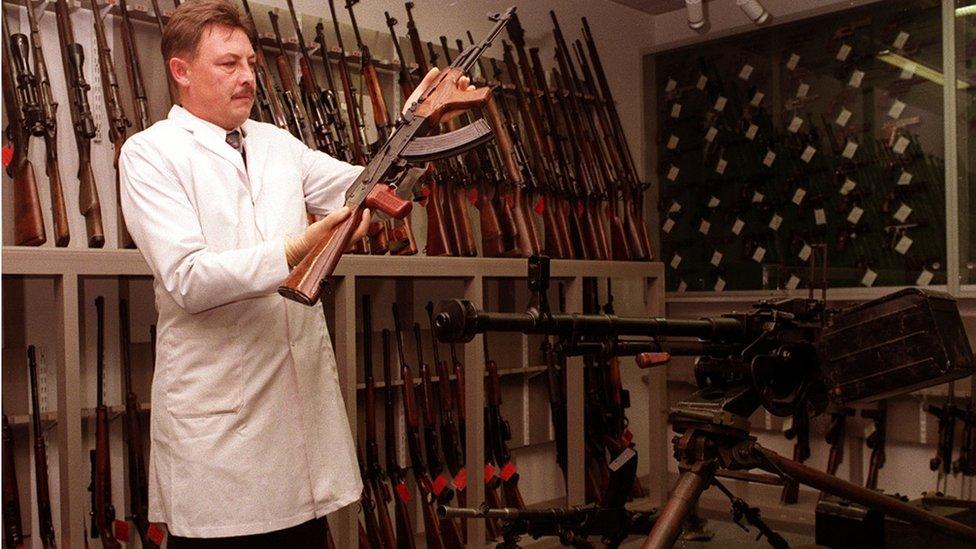
- Published11 June 2013
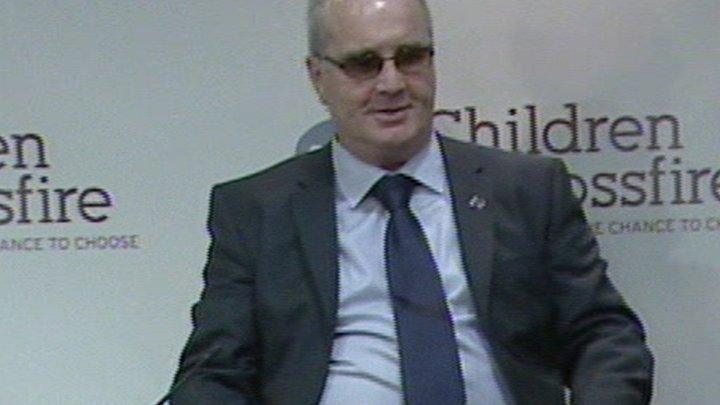
- Published7 March 2023
